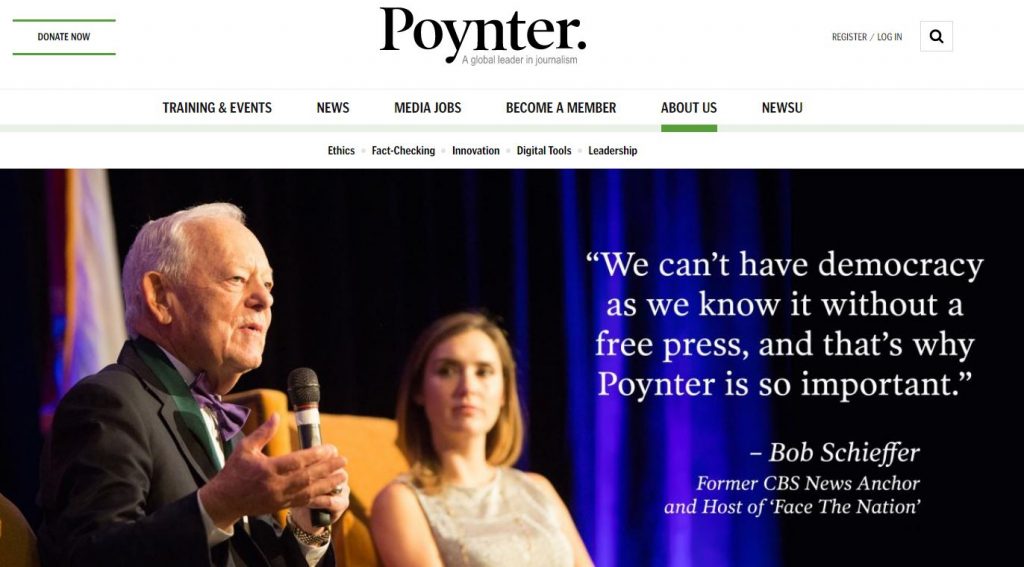Sometimes the great teachers are role models to emulate, and sometimes they are the ones whose unfortunate actions you learn not to repeat.
Poynter Institute, which touts itself as the world’s leading instructor for journalists, unfortunately fell into the latter category this week with regard to an important story for this news organization.
Poynter writer James Warren was given a copy of an email from our former executive editor, Jeff Good – who also served as the editor of the Daily Hampshire Gazette – which he sent to all staff members as he was leaving the company. Good said in the email he was fired for standing up for pay equity for women staff members.
 Warren wrote a story based on the email, and Poynter published it before receiving statements from any other source. Warren did not attempt to reach out to the three journalists who were named in the email – it turned out – against their wishes, and who – it turned out – did not feel that Good represented their best interests. He did reach out to Good’s boss, but Poynter published before hearing back.
Warren wrote a story based on the email, and Poynter published it before receiving statements from any other source. Warren did not attempt to reach out to the three journalists who were named in the email – it turned out – against their wishes, and who – it turned out – did not feel that Good represented their best interests. He did reach out to Good’s boss, but Poynter published before hearing back.
The reason: the email was already being discussed on Twitter and Poynter wanted the discussion to happen around its story.
That’s according to Kelly McBride, vice president of Poynter and formerly its ethics expert.
To Poynter’s credit, they immediately worked on getting an updated version of the story up after former staff members who worked with Good presented more information, but the sin of a place like Poynter, which teaches best journalism practices, proceeding with a one-source story is unforgivable.
When asked why, McBride gave the disappointing answer that Good’s status in the journalism community gave the story credence.
“When a well-respected, well-known journalist makes a statement like that, I think it is a legitimate story,” she said, adding that they also have an obligation to reach out to the organization in question.
Respect and standing in the field does not trump the need to look for other points of view.
The more complete story, as Poynter came to find out after it received calls from former staffers, involves several women who worked with Good disputing his portrayal of himself in his email.
Reporting by the Boston Globe and the Washington Post also came up short on this story. While both the Post’s Erik Wemple and the Globe’s Stephanie Ebbert did do significant reporting before their stories were published, neither web headline indicates Good’s version of events is in dispute by women he has worked with. One must read a significant way into both stories (in Wemple’s not until near the end) to learn this.
Both reporters said they had trouble getting statements and on-the-record comments from other players in the story.
Good is the one who sent the email that set this story off, and it is important to give him his say, but in this complex situation there are other voices that are just as important.
Dave Eisenstadter can be reached at deisen@valleyadvocate.com.



